Posted on Friday, January 27th, 2017
 While Punxsutawney Phil and Wiarton Willie prepare to celebrate the end of winter (we hope), the eve of Ground Hog Day is a time for celebration in the Ontario College system. It’s the day that colleges start sending out offers of admission to the thousands of prospective students who apply to college each year.
While Punxsutawney Phil and Wiarton Willie prepare to celebrate the end of winter (we hope), the eve of Ground Hog Day is a time for celebration in the Ontario College system. It’s the day that colleges start sending out offers of admission to the thousands of prospective students who apply to college each year.
February 1st is known as the equal opportunity deadline, but it’s also the day colleges start letting applicants know if they have met the admission requirements for the programs they have applied to. Yes, there will be some disappointed applicants, but colleges are very good at making alternative offers that help applicants stay on their pathway to their chosen career.
At Algonquin College’s Waterfront Campus, applicants can expect a very personalized experience as they learn their admissions status. They will be able to check their application on the Ontario College Application Service website to see if the college has made them an offer of admission.
 Later in the day, they can expect a congratulatory email from the Waterfront Campus that will provide additional information on their next steps in the admissions process. The email will also include a congratulatory video message from their program coordinator and a personalized invitation to attend the campus March Break Open House on Saturday, March 11th.
Later in the day, they can expect a congratulatory email from the Waterfront Campus that will provide additional information on their next steps in the admissions process. The email will also include a congratulatory video message from their program coordinator and a personalized invitation to attend the campus March Break Open House on Saturday, March 11th.
By late afternoon or evening, college faculty and student services staff will be calling accepted applicants to congratulate them and answer any questions they might have about their program or the Waterfront Campus.
All of these touchpoints are part of the college’s effort to help applicants feel comfortable with the decision they are making to enroll in a post-secondary program. It’s also the first step in building a relationship with incoming students.
Over the course of the admissions cycle, there will be plenty of opportunities for new students to get to know the campus and the faculty who will be teaching them. There will be invitations to open houses, program preparation camps, jump-start academic programs and of course orientation activities. By the time, September rolls around, students will be very familiar with their new surroundings. Students and families can also get to know our campus by joining our online community through Facebook, Twitter, and Instagram.
It all starts on February 1st, when the Waterfront Campus says congratulations, you’ve been accepted into college!
Posted by: Jamie Bramburger, Manager of Community and Student Affairs
Posted on Wednesday, January 18th, 2017
2017 is a very special year for Canada and Algonquin College. Both have a milestone birthday as the country celebrates being 150 years old and the College marks its 50th anniversary.
To celebrate these two occasions, Algonquin College’s Waterfront Campus is dedicating its 2017 speaker series to covering topics of Canadian history.
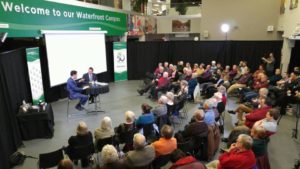 The Speaker Series kicked off recently with Steve Paikin, long time host of TVO’s popular political program, The Agenda. Paikin has written a book on former Ontario Premier, Bill Davis, the founder of the Ontario college system.
The Speaker Series kicked off recently with Steve Paikin, long time host of TVO’s popular political program, The Agenda. Paikin has written a book on former Ontario Premier, Bill Davis, the founder of the Ontario college system.
Davis was Ontario’s second longest serving Premier and over his 14 years heading the province he had many accomplishments, but his legacy focuses on education through his work in founding colleges and introducing equal funding for the Catholic school system.
On April 18th, the College will welcome Tricia Logan, Education and Outreach Coordinator for the National Centre for Truth and Reconciliation. The NTR commission issued 94 calls to action in its landmark report which dealt with several sensitive issues including residential schools.
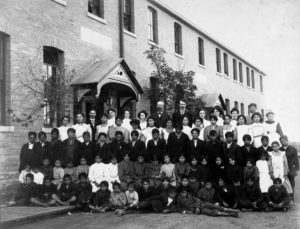
Logan’s presentation will focus on the legacy of the residential schools, the inclusion and exclusion of the schools in Canadian history and what it means to approach a new version of Canada and revised Canadian histories.
Sean Conway is well known at Queen’s Park for his oratory skills. Now retired as an elected member of provincial parliament, Conway is a frequent lecturer at universities across the province.
He has put together a talk entitled, “The Character and Colour of the Ottawa Valley Political Tradition” that he will present at the Waterfront Campus on May 8th. Filled with stories about politicians at all levels who represented Ottawa Valley constituents, the lecture will be a wonderful history lesson on local politics.
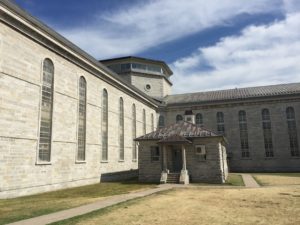 The now closed Kingston Penitentiary was Canada’s oldest and most notorious prison. It was also the backdrop for author Merilyn Simonds’ best selling book, “The Convict Lover” which tells the story of a young Renfrew man who is imprisoned, but has a romance with a young woman while serving time for a series of misdeeds in the Ottawa Valley.
The now closed Kingston Penitentiary was Canada’s oldest and most notorious prison. It was also the backdrop for author Merilyn Simonds’ best selling book, “The Convict Lover” which tells the story of a young Renfrew man who is imprisoned, but has a romance with a young woman while serving time for a series of misdeeds in the Ottawa Valley.
Simonds, who has authored 17 books, will participate in the Speaker Series on September 12th sharing many stories about what led to Canada’s first prison riot.
 For Canadian hockey fans, September 28, 1972 is a date that will live on as one of the defining moments in Canadian sports history. It was the day that Paul Henderson of the Toronto Maple Leafs scored a late goal for Canada in the deciding game of the Summit Series with the Soviet Union.
For Canadian hockey fans, September 28, 1972 is a date that will live on as one of the defining moments in Canadian sports history. It was the day that Paul Henderson of the Toronto Maple Leafs scored a late goal for Canada in the deciding game of the Summit Series with the Soviet Union.
2017 marks the 45th anniversary of that historic game, and author Roy MacSkimming will be in Pembroke on September 28th to talk about the series and his book entitled, “Cold War.” MacSkimming wrote the book for the 25th anniversary of Henderson’s goal, and will re-live the series which was about much more than hockey, but rather a battle between two political systems at a time when tensions between the west and the Soviet bloc were at their peak.
The 2017 series wraps up with Charlotte Gray on November 8th, as she speaks about her book entitled, The Promise of Canada. Gray will explore the great achievements in our country’s history, while acknowledging the darker shadows of our past.
More speaker series engagements may be added, but 2017 is shaping up to be a very special time for those interested in Canada’s history.
Posted by: Jamie Bramburger, Manager of Community and Student Affairs
Posted on Monday, January 9th, 2017
Community college system represented ‘a step towards democratization of higher education’ when it was established. Now, it sees students looking for training to help them find employment.
In the spring of 1966, when miniskirts, the Beatles and Bonanza were all the rage, Bruce Craig was a teenager who’d had enough of high school. He had no intention of returning for Grade 13 in the fall. Then he spotted a newspaper story about a new learning opportunity coming to his Scarborough neighbourhood. Continue reading this Toronto Star article >>
Posted on Sunday, January 8th, 2017
 Want to start a company with like-minded individuals but don’t know where to start? Motivated to gain valuable life and business skills? Interested in making money and providing value to the community – try entrepreneurship!
Want to start a company with like-minded individuals but don’t know where to start? Motivated to gain valuable life and business skills? Interested in making money and providing value to the community – try entrepreneurship!
Learn more about Venture Builder Program – “Explore Entrepreneurship,” an exclusive opportunity to all Waterfront Campus students. If you are interested to learn more or dive right in, please contact Chris Doré, Entrepreneur in Residence, with your questions at dorec1@algonquincollege.com.
Due to the nature of the program only 6-8 students will be accepted. The expectation is 2-3 hours per week and one group meeting a week. Upon acceptance, students will work together with the Entrepreneur in Residence to create a business.
Deadline for Venture Builder Program application is January 31, 2017 – get your name in today!
Posted on Friday, January 6th, 2017
Attention current students! We are offering a new General Elective course this semester – Becoming an Entrepreneur: Is it for me?
If you are interested in exploring your entrepreneurial spirit on Wednesdays from 3 – 5 p.m. this semester.
Name of Course: Becoming an Entrepreneur: Is it for me? GED0019-340
Professor: Chela Breckon
When it will be offered: Wednesdays from 3 to 5 p.m. in Room 334
What programs are eligible to take it as a Gen Ed: Construction Techniques, Forestry, and General Arts and Science.
Registration Process: please contact Pauline Edmonds General Electives Coordinator to register, edmondp@algonquincollege.com, 613-735-4700 x2715, Room 323
Posted on Sunday, December 18th, 2016
A lot has happened in the past year at Algonquin College’s Waterfront Campus. That’s why it’s so tough to put together a top ten list of reflections, but here it goes…
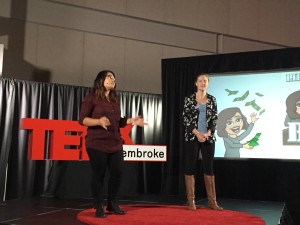 Coming in at number 10: The introduction of an Entrepreneur-in-Residence. Chris Doré joined the campus in January and has brought forward many initiatives that are creating a more entrepreneurial spirit on campus. This includes the development of a student entrepreneurial club, the first TEDxPembroke event and the college’s sponsorship of StartUp Ottawa Valley, a grassroots network that encourage entrepreneurs throughout our region.
Coming in at number 10: The introduction of an Entrepreneur-in-Residence. Chris Doré joined the campus in January and has brought forward many initiatives that are creating a more entrepreneurial spirit on campus. This includes the development of a student entrepreneurial club, the first TEDxPembroke event and the college’s sponsorship of StartUp Ottawa Valley, a grassroots network that encourage entrepreneurs throughout our region.
#9: The incredible applied research done by students in the Environmental Technician program who spent hundreds of hours tackling a complex environmental issue along the Muskrat Lake watershed in Whitewater region.
 #8: The community contributions of our students and graduates. Alumnus Jason Blaine raised a record $80,000 at his third annual charity concert and golf tournament and has now been able to invest more than $200,000 in local community causes. Office Administration-Executive student Wendy Hewitt was elected as Chair of the Renfrew County District School Board trustees and students in our Bachelor of Science in Nursing program participated in a humanitarian mission in Guatemala. Just a few examples of how our students and alumni made a difference in 2016.
#8: The community contributions of our students and graduates. Alumnus Jason Blaine raised a record $80,000 at his third annual charity concert and golf tournament and has now been able to invest more than $200,000 in local community causes. Office Administration-Executive student Wendy Hewitt was elected as Chair of the Renfrew County District School Board trustees and students in our Bachelor of Science in Nursing program participated in a humanitarian mission in Guatemala. Just a few examples of how our students and alumni made a difference in 2016.
#7: The economic impact the Waterfront Campus is having on Pembroke’s downtown. Two privately owned and operated student residences are open and a third is under construction and will be ready for the fall 2017 intake. Several new stores have opened and many buildings that had been neglected are being invested in by developers who are helping build Pembroke’s reputation as a college community.
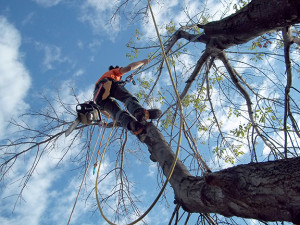 #6: The development of three new full-time programs that will launch in September of 2017. The new Action Sports Park Development program is the first college program of its kind in Canada, while the Urban Forestry-Arboriculture program will compliment the highly popular Forestry Technician program that has been offered at the campus for more than 45 years. The Applied Nuclear Science and Radiation Safety Diploma program has already been endorsed by Bruce Power for its future hiring needs.
#6: The development of three new full-time programs that will launch in September of 2017. The new Action Sports Park Development program is the first college program of its kind in Canada, while the Urban Forestry-Arboriculture program will compliment the highly popular Forestry Technician program that has been offered at the campus for more than 45 years. The Applied Nuclear Science and Radiation Safety Diploma program has already been endorsed by Bruce Power for its future hiring needs.
 #5: An inspirational visit by Canadian Olympian Melissa Bishop who captured the hearts of all Ottawa Valley residents at the summer Olympics when she just missed a medal in the 800 metre race. Bishop spoke to both students and visiting guidance counsellors during an October stop at the campus and broke news when she announced her intentions to be ready for another Olympiad in four years time.
#5: An inspirational visit by Canadian Olympian Melissa Bishop who captured the hearts of all Ottawa Valley residents at the summer Olympics when she just missed a medal in the 800 metre race. Bishop spoke to both students and visiting guidance counsellors during an October stop at the campus and broke news when she announced her intentions to be ready for another Olympiad in four years time.
#4: Having our Loggersports team celebrate a Grey Cup championship with the Ottawa REDBLACKS. While our athletes were prevented from attending the championship game in Toronto by the CFL, they were front and centre when 40,000 fans celebrated Ottawa’s first football title in 40 years.
#3: The hundreds of employers who provided placement and co-op experiences to our students and jobs for our graduates. Employers are critical to helping our college provide the skilled workforce that will ensure our region prospers in the future, and in 2016 our businesses were truly our greatest partners.
 #2: Words to live by from former Board of Governor representative Fred Blackstein at our 2016 convocation ceremony. His six words, “Be Algonquin Proud, Make Algonquin Proud,” have become a call to action for the entire Waterfront Campus community.
#2: Words to live by from former Board of Governor representative Fred Blackstein at our 2016 convocation ceremony. His six words, “Be Algonquin Proud, Make Algonquin Proud,” have become a call to action for the entire Waterfront Campus community.
#1 thing to celebrate is: Another record enrollment of students at the Waterfront Campus. With almost 1,000 full-time students studying at the campus, the college is attracting both local and out-of-town students, helping produce college graduates who can help meet the workforce needs of employers across Canada, and in some cases around the world.
2016 was a great year. We look forward to even better things in 2017 as we celebrate our 50th anniversary!
Posted by Jamie Bramburger, Manager of Community and Student Affairs
Posted on Monday, December 12th, 2016
 Constable Kevin Francis is still adjusting to the frigid temperatures and only five hours of sunlight each day, but he is thrilled to have launched his policing career in one of Ontario’s most remote regions. The Pembroke Campus Police Foundations graduate is part of the Nishnawbe-Aski Police Service and is posted in the Northern Ontario Aboriginal community of Sandy Lake, where the winter daily highs are normally -30 Celcius.
Constable Kevin Francis is still adjusting to the frigid temperatures and only five hours of sunlight each day, but he is thrilled to have launched his policing career in one of Ontario’s most remote regions. The Pembroke Campus Police Foundations graduate is part of the Nishnawbe-Aski Police Service and is posted in the Northern Ontario Aboriginal community of Sandy Lake, where the winter daily highs are normally -30 Celcius.
“It’s a fly-in community,” says Francis, where police officers learn quickly how to problem solve. “It’s not an easy place to get to, so if you are in an emergency situation, you need to think quickly and perform to the best of your ability, because it may be a while before help arrives,” adds Francis.
Francis joined the force in April of 2014, four years after he graduated from the Police Foundations program. While waiting for his opportunity, he worked construction, but kept his foot in the door by volunteering with the Ontario Provincial Police in his hometown of Petawawa.
“I worked about 50 volunteer hours every month as an Auxiliary Officer, and kept applying to various police services. When I finally landed my first policing job, it was two years after I originally applied. New graduates can’t give up on their end goal of becoming a police officer,” says Francis, who adds the process is long, but very rewarding when you finally get to put on a uniform.
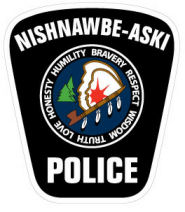 The Nishnawbe Aski Police Service mainly focuses on investigating criminal matters such as domestic disputes to weapons infractions. Officers often work with limited resources and backup while serving any of the 34 communities in Northern Ontario. The weather can be brutal in the winter with bitterly cold temperatures and plenty of snow, so officers are equipped with four-wheel drive trucks as many of the roads are made of ice.
The Nishnawbe Aski Police Service mainly focuses on investigating criminal matters such as domestic disputes to weapons infractions. Officers often work with limited resources and backup while serving any of the 34 communities in Northern Ontario. The weather can be brutal in the winter with bitterly cold temperatures and plenty of snow, so officers are equipped with four-wheel drive trucks as many of the roads are made of ice.
Francis recently dropped by the Waterfront Campus while home for a few days to meet with his former faculty. “It’s a great program with plenty of experienced teachers, from current and retired officers to lawyers and faculty who had experience in military policing. “That diversity in teaching really helped prepare me for the Police Academy and my first policing position,” says Francis.
Most days, Francis works a ten hour shift. Sometimes the shifts can be much longer, but he is enjoying his career and looking forward to the years ahead, no matter where life takes him. For now, he’ll continue to dedicate himself to the people of Sandy Lake First Nation, some 600 kilometres Northwest of Thunder Bay.
“It’s a long way from home, but I’m thrilled to be here,” says Francis. It has been an incredible learning experience and I can thank Algonquin College for helping put me on the right path to becoming a police officer.”
The Police Foundations program is a two year college diploma. Graduates find employment in a variety of law and security fields including policing, airport security and private security services.
Posted on Monday, December 5th, 2016
I hate working in groups – there are too many personalities and there’s always someone who doesn’t pull their weight! But my courses involve a lot of group work. How do I deal with this?”
Group work is challenging, no doubt about it. Students often come away from group projects feeling like other members have not contributed enough. Difficulties with planning and managing time, and allocating responsibility often leave students feeling frustrated and resentful.
You might not like it, but professors assign group work for a number of important reasons. Gaining exposure to group work while you are still in college provides a great opportunity to learn how to effectively collaborate, give and receive feedback, and manage potential conflicts. These are skills that will undoubtedly benefit you in your future career.
Group work also allows you to share different perspectives and learn from your diverse peers. Effective groups engage in open discussions that respectfully challenge each other’s beliefs and assumptions. This is what college is for! These experiences will help you to develop stronger communication and critical thinking skills.
The next time you find yourself working in a group, try to use the following tips:
1. Create a supportive atmosphere
You are all in this together so make sure that people feel included and valued. Positive feedback is great! This will help to strengthen the group rather than weaken it if challenges arise.
2. Listen and acknowledge
You can do this by paraphrasing and summarizing what they’ve told you. If everyone feels heard they will be more invested in the project, increasing your chances of success.
3. Set clear objectives
Make sure each group member has an understanding of their role and specific responsibilities. Write it all down and review this each time you meet in order to assess progress.
4. Be prepared to meet halfway
You can’t be part of an effective group without compromising.
5. Have open conversations
If a group member is not pulling their weight, be prepared to express your concerns. Start by being empathetic and supportive. Try this: “I know you’re really stressed about school right now, but I’m feeling a bit anxious because I don’t have your slides yet for the presentation. Could you send them to me today?”
6. It’s about the journey
Remember that the professor is not only interested in the final product. The process itself is a learning experience that is going to help prepare you for your future career. Treasure this time as an opportunity to practise for the real world!
7. Make an appointment
If you are interested in speaking with a counsellor about improving your interpersonal skills, make an appointment with one of the counsellors at your campus.
Posted on Sunday, December 4th, 2016
As Algonquin College prepares to celebrate its 50th anniversary in 2017, it will also launch several new programs at its Waterfront Campus.
Building on the success of its unique programs that attract students from across Canada, the campus is adding three programs to its line-up that are expected to draw students from both within Renfrew County and beyond the region’s geographical boundaries.
The most unique of these programs is the Action Sports and Park Development one year certificate program. As skateboard parks, BMX biking trails and snowboarding facilities become common place, this growing industry requires skilled workers who can build, design and maintain these extreme sport parks.

This is the first college program of its kind in Canada, and compliments the already very popular Outdoor Adventure program which was introduced at the campus more than 15 years ago, leading to a significant surge in the campus’s out-of-town population.
Urban Forestry-Arboriculture is also on the docket for the fall 2017 intake. This is also a one year certificate program, and while some other colleges also deliver this program, it will help the Waterfront Campus open up more opportunities for students who are looking for a career in the forestry sector. Over the past several years, the Forestry Technician program has had pent up demand, resulting in some students being placed on a wait list because all of the seats in the program were filled.

The third program being introduced is actually an expansion of the Radiation Safety program. The program will be renamed to Applied Nuclear Science and Radiation Safety and move from a one year certificate to a two-year diploma program, primarily to ensure the curriculum is meeting the expectations of the nuclear industry.
Bruce Power, Ontario’s largest private electricity generating company, has already endorsed the program by publicly choosing it as among a hand full of programs that it will endorse for its future workforce needs.
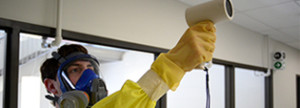
In addition to these new programs, others are changing. The Police Foundations program that has been traditionally offered as a two year diploma, will move to a compressed format allowing students to earn their college diploma in one calendar year.
The General Arts and Science Pre-Nursing and Pre-Health Sciences programs will also be getting a new name. There have also been some curriculum updates to these programs to allow them to offer enhanced pathways to college certificate and diploma programs and college and university degree programs. These changes are province wide and should be announced soon.
2017 will be a very special year of celebration for the college, and there is no way to better celebrate than by offering more programming.
Posted by Jamie Bramburger, Manager of Community and Student Affairs
Posted on Tuesday, November 22nd, 2016
 While Punxsutawney Phil and Wiarton Willie prepare to celebrate the end of winter (we hope), the eve of Ground Hog Day is a time for celebration in the Ontario College system. It’s the day that colleges start sending out offers of admission to the thousands of prospective students who apply to college each year.
While Punxsutawney Phil and Wiarton Willie prepare to celebrate the end of winter (we hope), the eve of Ground Hog Day is a time for celebration in the Ontario College system. It’s the day that colleges start sending out offers of admission to the thousands of prospective students who apply to college each year. Later in the day, they can expect a congratulatory email from the Waterfront Campus that will provide additional information on their next steps in the admissions process. The email will also include a congratulatory video message from their program coordinator and a personalized invitation to attend the campus March Break Open House on Saturday, March 11th.
Later in the day, they can expect a congratulatory email from the Waterfront Campus that will provide additional information on their next steps in the admissions process. The email will also include a congratulatory video message from their program coordinator and a personalized invitation to attend the campus March Break Open House on Saturday, March 11th.



 Want to start a company with like-minded individuals but don’t know where to start? Motivated to gain valuable life and business skills? Interested in making money and providing value to the community – try entrepreneurship!
Want to start a company with like-minded individuals but don’t know where to start? Motivated to gain valuable life and business skills? Interested in making money and providing value to the community – try entrepreneurship!




 Constable Kevin Francis is still adjusting to the frigid temperatures and only five hours of sunlight each day, but he is thrilled to have launched his policing career in one of Ontario’s most remote regions. The Pembroke Campus Police Foundations graduate is part of the Nishnawbe-Aski Police Service and is posted in the Northern Ontario Aboriginal community of Sandy Lake, where the winter daily highs are normally -30 Celcius.
Constable Kevin Francis is still adjusting to the frigid temperatures and only five hours of sunlight each day, but he is thrilled to have launched his policing career in one of Ontario’s most remote regions. The Pembroke Campus Police Foundations graduate is part of the Nishnawbe-Aski Police Service and is posted in the Northern Ontario Aboriginal community of Sandy Lake, where the winter daily highs are normally -30 Celcius. The Nishnawbe Aski Police Service mainly focuses on investigating criminal matters such as domestic disputes to weapons infractions. Officers often work with limited resources and backup while serving any of the 34 communities in Northern Ontario. The weather can be brutal in the winter with bitterly cold temperatures and plenty of snow, so officers are equipped with four-wheel drive trucks as many of the roads are made of ice.
The Nishnawbe Aski Police Service mainly focuses on investigating criminal matters such as domestic disputes to weapons infractions. Officers often work with limited resources and backup while serving any of the 34 communities in Northern Ontario. The weather can be brutal in the winter with bitterly cold temperatures and plenty of snow, so officers are equipped with four-wheel drive trucks as many of the roads are made of ice.
